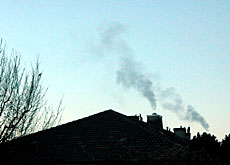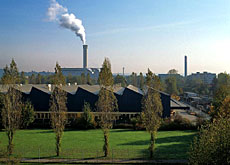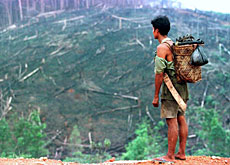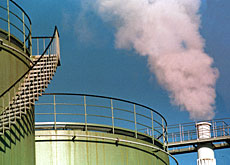Environment Agency sounds alarm

More needs to be done to curb emissions and pollution, according to a report released to mark World Environment Day on Saturday.
The Swiss environment agency says that despite progress in some areas Switzerland’s natural habitat remains under threat.
The agency’s director, Philippe Roch, warned this week that without a concerted effort, developed countries would fail to reach the targets in the Kyoto Protocol for reducing greenhouse gas emissions.
That treaty, which has yet to be ratified by several states, requires that countries cut emissions by ten per cent from 1990 levels by 2012.
On Friday, the Swiss authorities opened a second International House of the Environment to provide a base for non-governmental organisations working from Geneva.
In Switzerland, concerns about global warming nudged higher up the political agenda in the summer of 2003, when the mercury topped all records.
According to the environmental authorities, every second summer will rival that of 2003 by the end of the century unless something is done to curb greenhouse gases.
Under Swiss law, emissions of C02 must be cut by four million tons by 2010, corresponding to a 15 per cent drop from 1990.
Target
This would allow Switzerland to meet its Kyoto target, but more will be required of all developed countries to solve the problem in the longer term, Roch said.
The report said that quality of life should be protected by placing stricter limits on noise pollution – something which affects one million people in Switzerland.
The report added that the use of pesticides and chemicals had declined, and that levels were safe in the hundreds of test wells across Switzerland. But it warned that toxins were still showing up more than half the time.
“This represents unacceptable pollution given that ground water provides 80 per cent of Swiss drinking water,” the report concluded.
The health of rivers and lakes is also a concern – yields of some species of trout have declined by as much as 60 per cent.
Concrete jungle
The report also found that animals were running out of room to move because “Switzerland is paving a square metre of cultivated ground every second”.
It said that of 303 mapped corridors for wildlife migration in Switzerland, 47 are wholly disrupted and 171 are significantly impaired.
Roch advises developers to consider using reclaimable industrial sites rather than encroaching on farmland.
And the report recommends that animal migration and habitats be taken into account when planning construction projects and roads.
“Around 50,000 sites including numerous bodies of water are polluted, and up to 4,000 will have to be [cleaned up] over the next 20 to 25 years, at a total cost of SFr5 billion,” said the report.
“The problem is compounded by the fact that removing the ‘sins of yesteryear’ is not an exact science.”
swissinfo, Elizabeth Meen
The Kyoto Protocol calls on developed countries to reduce greenhouse gas emissions by ten per cent from 1990 levels by 2012.
Greenhouse gases include emissions from motors, cars, heaters and air conditioners.
Swiss law requires a ten per cent reduction by 2010.

In compliance with the JTI standards
More: SWI swissinfo.ch certified by the Journalism Trust Initiative



You can find an overview of ongoing debates with our journalists here. Please join us!
If you want to start a conversation about a topic raised in this article or want to report factual errors, email us at english@swissinfo.ch.